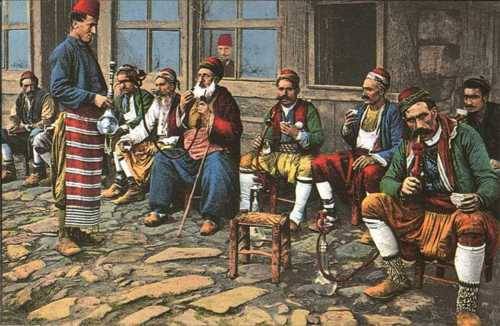THE WHITE NOISE OF COFFEE HOUSES
Last Saturday, I met a friend at a small coffee house in my neighborhood. About 30 customers had filled the place and most of them were so fixed upon their lap tops that few, if any, looked up when we entered. After ordering our beverages, my friend and I found a table and as we sat down, I remarked that Wi-Fi had changed the atmosphere of such places considerably.

(courtesy: GoogleImages)
Historically, the Turks invented coffee houses in the 1400s and brought their habit with them whenever they invaded a country. Europe became addicted in the 1500s and Britain fell to the coffee bean in the 1600s. The English referred to their establishments as “penny universities” because that was the price of coffee at the time and the sites were frequented by upper class businessmen who conducted negotiations there. Lloyd’s of London began as a coffee house and so did the New York Stock Exchange.
In my bohemian days, coffee houses were rooms where women with white powdered faces and charcoaled eyes sat beside black clad men and discussed what it meant to be an Existentialist. I confess I, too, enjoyed more than one conversation in those dark rooms where the aroma of roasted beans was as pungent as Arabian perfumes.
Given the history of coffee houses, I admit to being unnerved by the quiet of today’s establishments and wonder if some new etiquette is required, one more akin to the public library.

(courtesy: GoogleImages)
After a few minutes of a muted conversation with my friend, I felt guilty to see the man at the next table close his lap top and rise to leave. When I apologized for having disturbed his concentration, my comment seemed to take him by surprise. “No need to apologize,” he assured me. “I come here for the white noise of conversation. I can ignore it but not the ring of my doorbell or an in-coming fax.
We smiled at one another in understanding and before he left, he wrote down the title of a book I’d been struggling to remember for my friend… a gesture which put a lie to his “white noise” argument. Still, I mustn’t discount his statement, entirely. Some successful authors have written their books in coffee houses, Stephen King and John Irving among them. But I suspect the attraction of these establishments has little to do with either work or concentration. I suspect the attraction is as it always was: an affinity for good coffee and pastries which someone else has prepared.